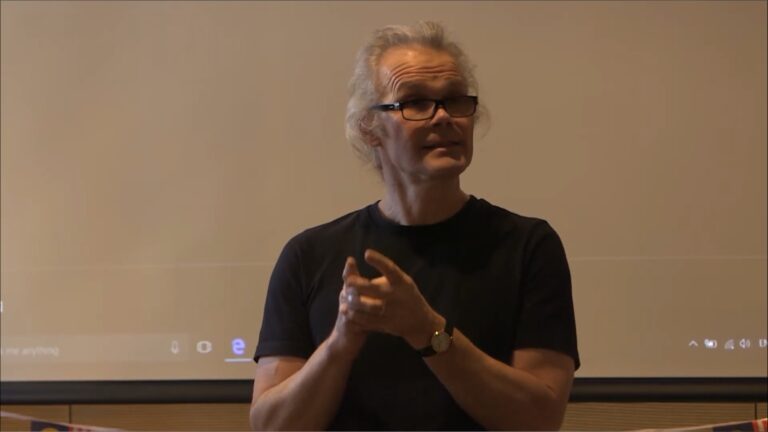In this 2020 interview, Exley talks about his research on aluminum and brain toxicity.
A less cold response
The incidence of autism and Alzheimer's disease has been increasing for decades.
In 2021, the Centers for Disease Control and Prevention estimated that approximately 1 in 44 According to 2018 data, 100 children as young as 8 in the United States were diagnosed with autism spectrum disorder. 1 in 54 statistic reported in 2020 The first autism prevalence study conducted in the United States in 1970 found a prevalence of less than 1 in 10,000 people, but this has increased significantly since then.
Fee Alzheimer's disease increased by more than 145% between 2000 and 2019.
Despite rising incidence of these diseases, his research into Alzheimer's and autism has elicited silence from major charities working on these diseases, and he says that Keele University, where he worked, simply turned a blind eye to him without promoting his findings or issuing any press releases.
Perhaps not surprisingly, Exley Anti-vaccinationThe slander was made by internet trolls shortly after he published his research. Aluminum in autistic brain tissue In 2017 he said:
A thorough review of the paper in question and all our published work finds nothing to support this label, but the truth is, I don't see why we can't be against vaccinations the same way we are against anything else. Anti-vaccination It seems a bit like being considered an atheist in a predominantly Christian world.
Exley describes himself as an agnostic in the tradition of one of his most respected scientists, T.H. Huxley, meaning he is reluctant to claim certainty about things he does not know or cannot prove. Have Elevated levels of aluminum have been demonstrated in the brains of people who die from autism.
The 2020 paper “Aluminum adjuvants included in vaccines are an acute exposure to aluminum.' tried to explain why so-called “minuscule amounts” of aluminium in infant vaccines actually matter.
The paper concludes:
Exposure to aluminum from vaccines is an acute exposure compared to dietary exposure, and infant physiology responds differently to high concentrations of aluminum over a very short period of time. The latter acute and chronic exposures have not yet been considered in infant vaccination programs, but they need to be considered now to ensure that future vaccination schedules are safe.
Can science be 'anti-vaccine'?
Although Exley's study was a broader look at the biological effects of aluminum in humans and was not limited to exposure through vaccines, his work nonetheless attracted negative attention that the university later made clear was not desirable.
After a series of bizarre and drawn-out exchanges with university authorities and what eventually emerged as an attack on its funding sources, Exley's long-standing position at Keele began to unravel.
Exley said. Alice Through the Looking Glass During his final years at Keele, senior management repeatedly attempted to take “unfounded disciplinary action” against him.
I only avoided being fired thanks to hiring one of the world's most expensive employment lawyers. Needless to say, these events had a negative impact on my health, but I persevered, at least as long as I had the funding to continue doing good scientific research.
If I had stayed at Keele as a lame duck professor, I'm sure they would have continued to hound me until I left.
But rather than being forced out, Exley eventually resigned, finding himself unable to continue his research and therefore unwilling to stay.
“For more than 20 years, I have had the full and unconditional support of the university,” Exley wrote in his confessional. Resignation statement.
what happened?
The beginning of the end
In 2016, the university launched a simple portal for Exley's team to receive donations, and it worked well for a few years, he said.. But in 2018, senior management began to step in. The excuse was made that the online portal was inadequate and an alternative system needed to be built.
Exley was highly successful in raising independent and voluntary funding for his research, from traditional sources as well as from the public and philanthropists: he raised around £6 million during his 30-year tenure at Keele, most of which came from traditional donors (corporations, governments and large charities).
This was unusual, at least at Keele, he says.
To get funding from a charity, for example, you need a profile, and you need to be willing to work really hard to get sponsors, for example, to travel the world and speak in different settings.
Research into the role of aluminium in vaccines was one of his main areas of research, but this work was unpopular among major funders. Nevertheless, Exley managed to raise around £1 million in charitable donations over his last seven or eight years at the university, which kept vaccine research afloat. It was this funding stream that led Keele to cut it off.
He began receiving emails from would-be donors saying the portal wasn't working, and discovered it had been disabled. He was then told by administrators that they needed clearer rules about “crowdfunding,” rules that he says only applied to him at the university. He was told this, even though he had never tried crowdfunding and none of his money came from crowdfunding. Exley believes this was instead the impression Keel wanted to give.
The role of the media
In 2019, of Guardian Published an article His funding was reviewed through Kiel's online funding portal, drawing attention to his research into a potential link between aluminium in vaccines and autism. The article was clearly aimed at discrediting his research and casting doubt on the legitimacy of its funding.


